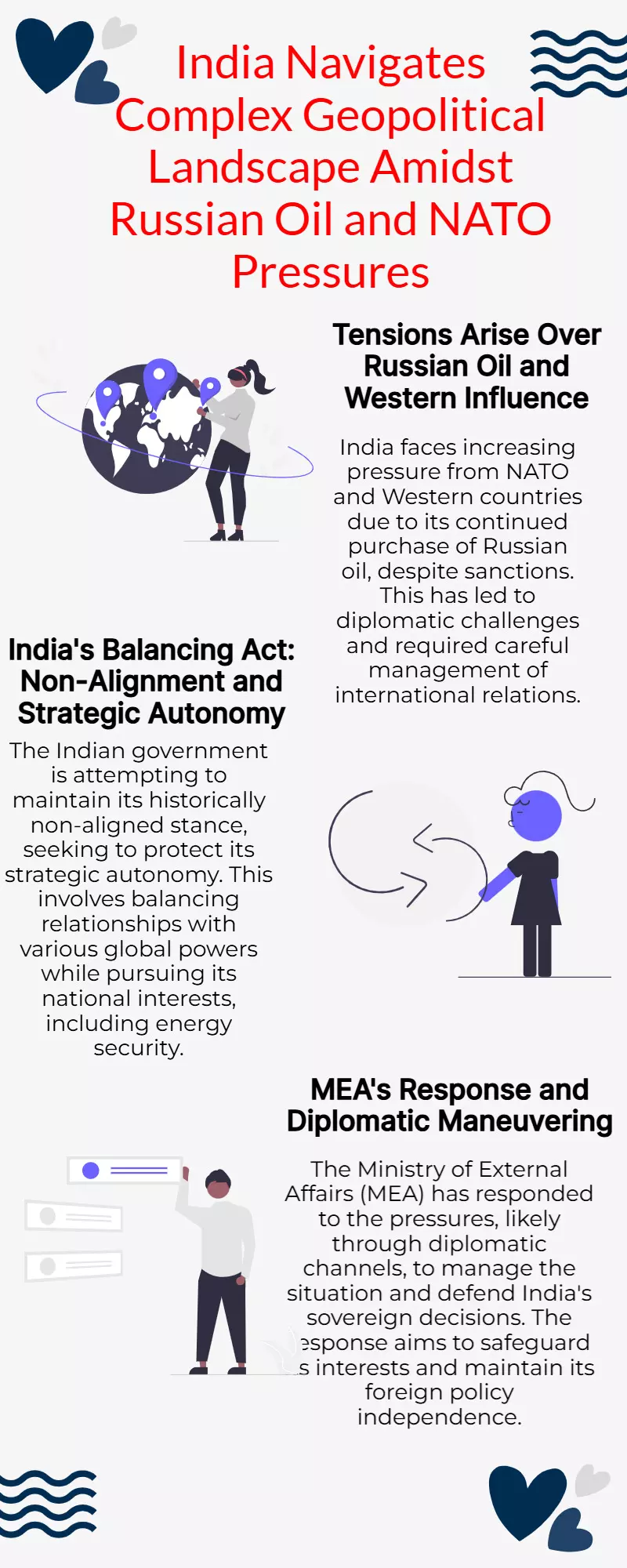After S-400, Russia oil warning: NATO pressures 'non-aligned' India; MEA responds.

By : Sandhya
India Rejects NATO Chief's Threat Over Russian Oil; Reaffirms Independent Policy
New Delhi, July 19 – As the Russia-Ukraine conflict continues to affect global stability, tensions are rising between the West and countries maintaining trade ties with Moscow. India has pushed back strongly against threats of economic sanctions and tariffs from NATO and U.S. lawmakers over its ongoing purchase of Russian oil, citing national interest and energy security as top priorities.
The warning came from NATO Secretary-General Mark Rutte, who said that countries like India and China could face 100% secondary tariffs if Russia does not enter peace negotiations within 50 days. These remarks followed former U.S. President Donald Trump’s threat to impose steep tariffs on Russian oil and press allies to stop dealing with Moscow.
In response, India’s Ministry of External Affairs (MEA) rejected the warning and emphasized its sovereign right to make decisions based on domestic needs. MEA spokesperson Randhir Jaiswal stated:
“Securing the energy needs of our people is an overriding priority... We are guided by what is available in the markets and prevailing global circumstances. We caution against any double standards on the matter.”
India has been a key buyer of discounted Russian oil since the war began in 2022, despite mounting Western pressure. The U.S. has previously threatened India with CAATSA sanctions over its defense relationship with Russia, particularly the purchase of the S-400 missile system—a deal that India went ahead with, citing strategic necessity. Eventually, Washington issued a waiver, recognizing India’s legitimate defense interests.
Amid the latest backlash, U.S. Senators Lindsey Graham and Richard Blumenthal echoed Trump’s call for action, accusing India, China, Brazil, and others of “fueling Putin’s war machine” by buying Russian oil and gas.
Notably, NATO members themselves are not without contradictions—Turkey, a NATO ally, is now the third-largest importer of Russian oil. This has raised questions about the West’s double standards, which India has pointed out multiple times.
India’s stance highlights a broader shift in global diplomacy, where New Delhi continues to chart an independent foreign policy course, balancing relations with both Russia and the West while prioritizing strategic autonomy and energy security.
